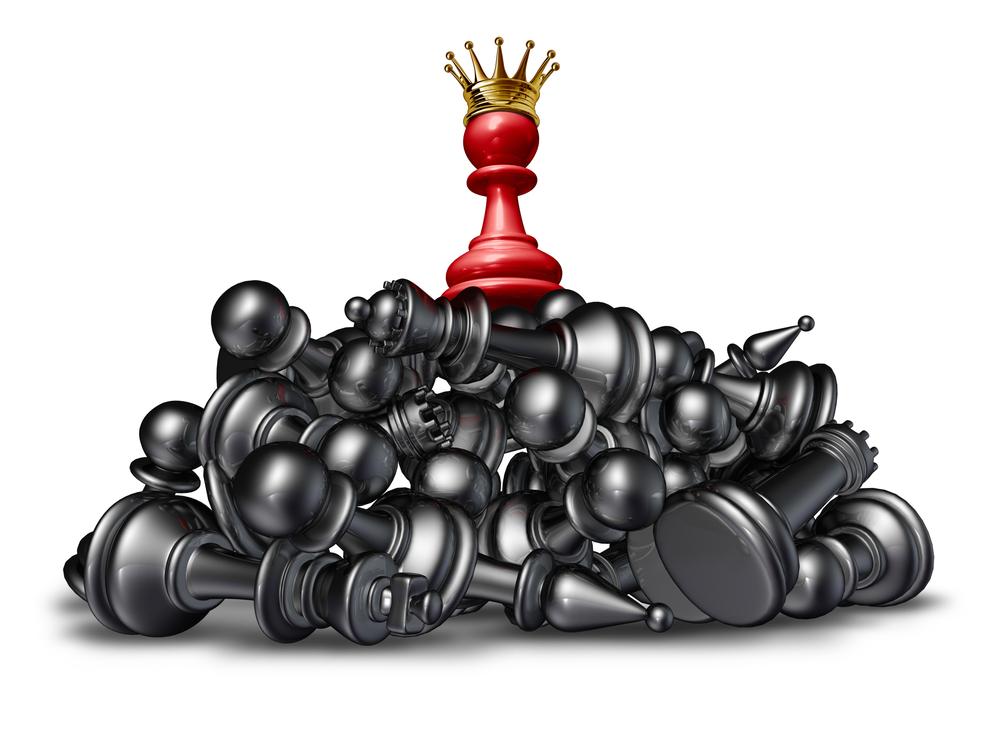
How To Be A Chess Legend
Legend: a story coming down from the past; especially: one popularly regarded as historical although not verifiable (Merriam Webster Dictionary).
There are great chess players and there are legendary chess players. What's the difference between them? A legend!
Some of the chess legends are so popular that even people who cannot tell a knight from a bishop know those stories. Here is a short excerpt from one of the most popular Soviet books, "The Twelve Chairs," published in 1928:
"Lasker, you know, has gone as far as trickery. It's impossible to play him anymore. He blows cigar smoke over his opponents and smokes cheap cigars so that the smoke will be fouler. The chess world is greatly concerned."
This is how the book perpetuates the popular (at that time) myth that Lasker smoked during the game on purpose to disturb his opponents.
For a legendary chess player the myth that surrounds his name is a very important part of his image. That's why from time to time great chess players create such legends themselves!

Take as an example the next game:
The world champion Capablanca, who was sometimes called "a chess machine," loses a game at the height of his career, playing White against a virtually unknown (outside of Russia) master Ilyin-Zhenevsky! Catastrophe? Not at all!
Immediately after the game Capa mentioned that had he played 30. Kh2 instead of 30.Kh1 he would have won the game... and the chess myth was born. For decades chess analysts all over the world tried to prove or refute this statement. I still remember a big dispute about this position in the Soviet chess weekly "64" in the end of 1970s and as far as I know the jury is still out on this game.
The problem is, whenever somebody gives a line that demonstrates that Black is winning even after 30.Kh2, his opponents immediately counter that Capablanca definetely meant another line for White, and since the chess god (Capablanca) couldn't be wrong, you probably simply don't see the line the great Cuban had in his mind!

As you can see, Jose Raul Capablanca y Graupera was a genius not only in chess! Had he mentioned any variation, there was a good chance that his variation would have been refuted, but by not providing any details he created a myth that is impossible to debunk!
Fast-forward 60 years, and we have a similar situation. This is the final game of the historic match that was going to produce a new world champion:
After the match was over, Karpov claimed in numerous articles and interviews (in both chess and non-chess publications), that by playing 23.f5! instead of 23.Be3 he was winning the game and the match. For decades Kasparov worked hard to dispel the myth.
He analyzed and reanalyzed the position using terabytes of computer memory and in his final book about the match he writes: " I found and then published the main variation of a successful defence. Since then much water has flowed under the bridge, and thanks to the intervention of powerful computer programs all the analysis has been greatly refined and deepened. But my conclusion has remained the same!"
So, Kasparov has proved that even though Black's defense was extremely difficult after 23.f5!, this move was still not winning! And what about Karpov? He never demonstrated any of the supposedly winning variations (which is very smart, remember Capablanca?), but here is what he said in his interview for the Russian news paper Sport Express just 3 months ago:
"I remember it like it was yesterday. Kasparov had eight minutes to make 16 moves. This is a terrible shortage of time, even more so when you have a bad position. I had 46 minutes, and a completely winning position. And then the unbelievable happens! I miss the win! Of course I would be able to achieve a draw, even when a draw would have achieved nothing. But I was so upset that I lost in the end. Sometime later, on our way to a tournament, Kasparov would not give it a rest on the plane. Using the computer he tried to prove that his position was not dead lost. He did his analysis. I waved it off and said, "It's all forgotten."

Now, my dear readers, I hope you know the main rule of a successful chess legend: it should be unverifiable! No matter how many variations you produce to refute Capablanca's or Karpov's claims, there will always be people who say: well, what if you don't see the lines these great chess players had in mind when they made their claims?
In order to demonstrate what an unsuccessful legend looks like, let me tell you a popular Russian joke.
Two friends talk over the phone.
-- Have you heard that Alexey Ivanov won a million dollars in a poker tournament?
-- Well, first of all it was Nikolay Petrov, not Alexey Ivanov, and he played backgammon, not poker and it was just one hundred, not a million, and it was rubles, not dollars, and he actually lost, not won!
I couldn't help but remember this old joke when read the recent article by GM Daniel Naroditsky. Judge for yourself: this is how Daniel starts his article:
"In 2006, at the Far West Open in Reno, I played the first two grandmasters of my life: Melik Khachiyan and fellow Chess.com columnist Gregory Serper. Khachiyan soundly outplayed me in a King's Indian, but my battle with Gregory was a different kettle of fish. After seizing the initiative in a Sicilian, I found myself with a golden opportunity to sacrifice a knight on e6. The complications clearly worked out in my favor — the attack was devastating in every line — but I could not imagine that a grandmaster could overlook such a banal tactical motif. I retreated to b3 instead, and resigned 20 moves later. "
And now, let's count:
1) "In 2006" -- We played in 2007, not 2006.
2) "I retreated to b3 instead" -- The knight never retreated to b3; it retreated to f3.
3)" I found myself with a golden opportunity to sacrifice a knight on e6. The complications clearly worked out in my favor" -- No, they clearly didn't!
4) "the attack was devastating in every line" -- Nope, it wasn't!
5) "I could not imagine that a grandmaster could overlook such a banal tactical motif" -- Of course the GM saw the sac and also saw that it wasn't that dangerous.
6) "and resigned 20 moves later" -- Nope, Naroditsky resigned 17 moves later.
But of course, I have to give Daniel credit. His statement "seizing the initiative in a Sicilian" is absolutely correct. Naroditsky indeed got the initiative early in the game, just like every single chess player who played the Sicilian Defense against Kasparov after the moves 1.e4 c5 2. Nf3 d6 3. d4 seized the initiative in the opening.
Unfortunately, after successfully seizing the initiative, most of Kasparov's opponents shared the destiny of Naroditsky.
I bet some of our readers are wondering, why in his article Daniel Naroditsky showed his draw against Gonzalez, but preferred to keep his brilliant loss to Serper a secret? I am glad you asked. Here is the game:
I hope, my dear readers, this article will help you all to become legendary chess players!



